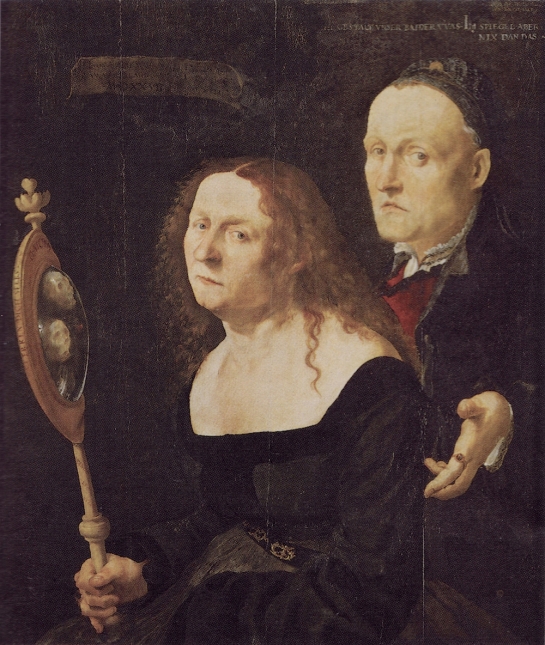Who do you think you are?

Lambert Wiesing, the only practicing phenomenologist I know, just published a book about the perception of self (Ich für mich). It’s a difficult argument, as you might expect. It turns out that proper philosophers have simply never addressed the matter before. It seems odd. But maybe it isn’t really. How do you think about how you think about yourself? And now we’re trying to think about that. It could go on forever.
But if you aren’t too worried about the reasoning behind it, the point he’s making doesn’t seem all that difficult and it’s really intriguing! He’s arguing that perception of self is aesthetic. Only the word is so mixed up with “art” in contemporary English usage that it needs rescuing. Older — even ancient — usage helps. For ancient Greek philosophers, “aesthetic” meant fairly immediate sensual perception — visual, acoustic, tactile, etc. — of a specific relationship between perceiver and perceived, of attraction or repulsion or disgust or confusion or any of a million possibilities. In any case it’s a particular perception, unique to that one person. Logic has nothing to do with it. Obligation has nothing to do with it. Aesthetic perception is physically located in a body, coloured and shaped by associations from one person’s specific life experience. Aesthetic experiences can’t be explained. They can’t be “defended” in any logical way. They can’t even be known, with certainly, to anyone other than the one experiencing them. They can sometimes be effectively painted or drawn or composed or expressed in poetic language, which is how the word was swallowed up by the idea of art. Maybe they can be shared — there’s no way to be certain. But we’re perceiving things aesthetically all the time, not just in art museums!
Wiesing necessarily draws on his own experience of self. He can’t persuade any of us logically that our respective experiences of self are aesthetic. But he can raise the issue, open the possibility that whether for good or ill, we know ourselves in the sense we might know a painting or a particular landscape or a face, as — it sounds like a contradiction — a singular relationship, an attraction or repulsion or mixture of both. To the extent he’s right, that aesthetic perception of self — is it rightly called appreciation? — affects everything we think or feel or do.
The image is of a painting that seems to be doing something a bit like Lambert is doing, from a blog that associates all painting with the search for self-knowledge. Click

